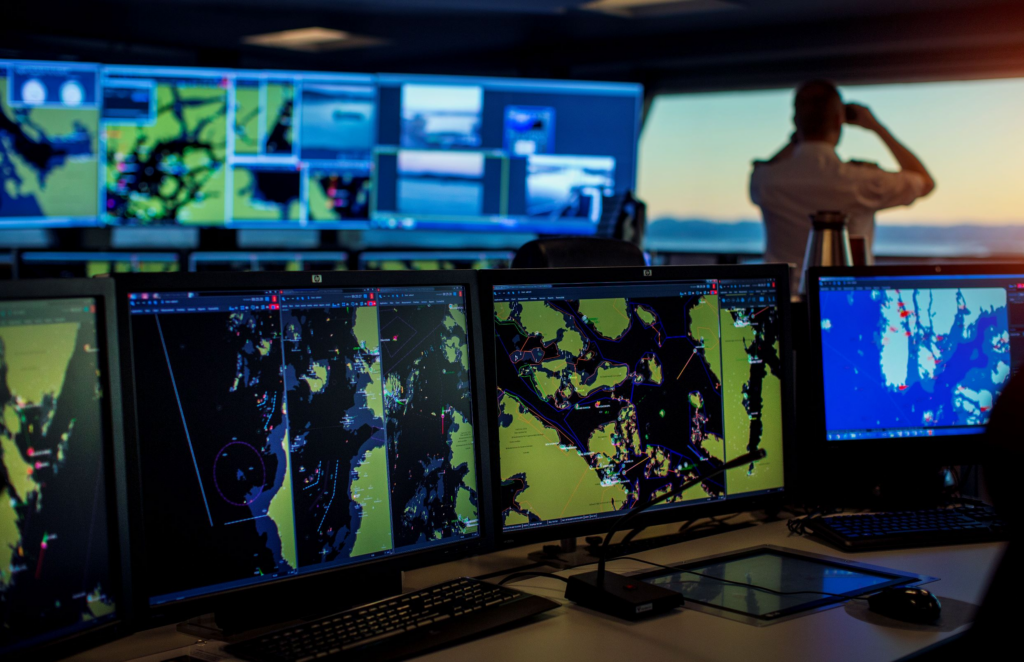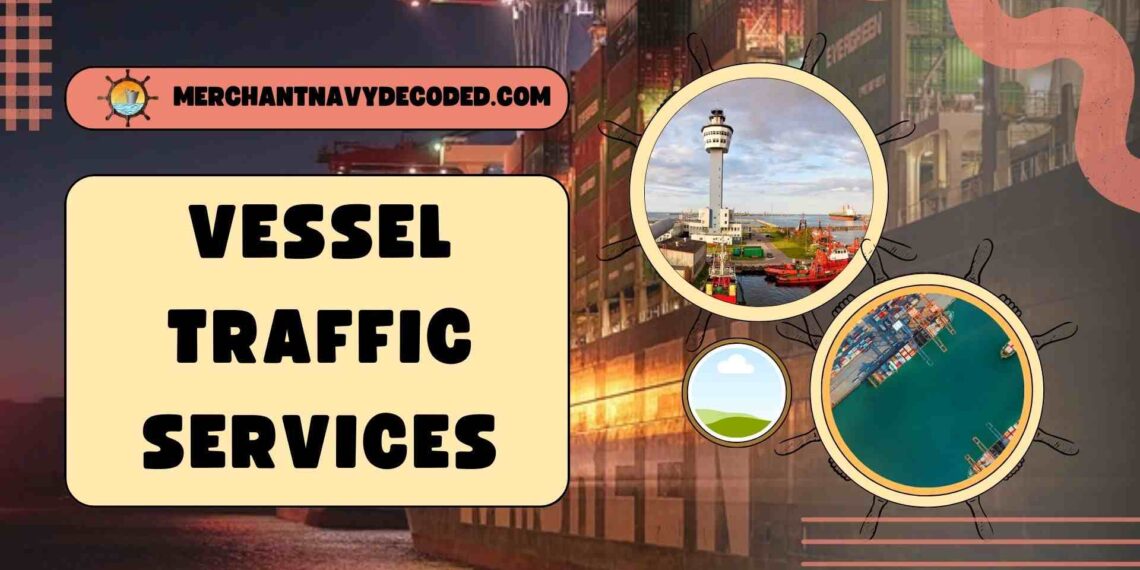What are Vessel Traffic Services?
Vessel Traffic Services System (VTS) is a service system that has been developed to keep track of or control the movements of vessels in any given water body. Like air traffic control that coordinates safe and efficient aircraft flight operations, the Vessel Traffic Service is a provision for vessels intending to pass through cluttered waterways. Using a net of radar systems, communication systems, and human beings, the vessel traffic service assists in managing marine traffic safely and efficiently.
2:- The Importance of Vessel Traffic Services
As international land trade and waterborne transportation grow, the importance of the Vessel Traffic Service has also increased. It is essential to have a comprehensive vessel traffic management system when more and more vessels are occupying the seas.
Among the functions of the Vessel Traffic Services, the most important are the following:
- Security: Reduction of the risk of collisions and accidents on the water. Supporting safety measures that minimize the possibility of vessels being involved in accidents.
- Traffic management: Optimizing the movement of the vessels in such a way as to minimize delays and fuel costs.
- Protection of the Environment: Avoid marine accidents that have the potential to cause spills and other forms of pollution.
3:- How Vessel Traffic Services Works

VTS operations may normally involve several steps:
- Monitoring: Vessel Traffic Services asks operators to monitor the movement of vessels using radar and audiovisual intelligent systems vessel traffic services has an onsite presence within the zone.
- Communication: Vessel Traffic Services allows people who form the VTS at each zone to give out information related to the vessels offered assistance in that zone, such as where to navigate, and the weather amongst other sea operations.
- Data Analysis: Assessment of movement activities tends to prevent maritime issues.
Through these processes, Vessel Traffic Service helps maintain order on the water, similar to how traffic lights and signs manage road traffic on land.
4:- Key Components of Vessel Traffic Services
4.1. Tracking and Monitoring
Among the core components of Vessel Traffic Services, is the capability of vessel tracking by means of radar and Automatic Identification System technology. This allows the operators to understand not only where the vessel is located at a particular time but also its speed and heading. This information assists in detailing traffic management practices.
4.2. Communication Systems
To run vessel traffic service operations, there has to be great collaboration among employees. This information is communicated by the VHF Radios and other platforms available on vessel traffic service to the vessel crew.
Such information can include;
- Messages regarding the status of traffic
- Meteorological information
- Warnings about safe navigation
Due to good communication, it has been made possible to alert vessels whenever any aspect of their operations whether safety or otherwise needs changes.
5:- Benefits of Vessel Traffic Services

The establishment of Vessel Traffic Services has several benefits some of which include:
- Reduction in Accidents: With the coordination of the movement of vessels, Vas there are fewer or no chances of collision or groundings.
- Efficiency in Trade: Delay times in busy ports can be very risky due to the effectiveness of international trade relations.
- Better Environmental Protection: Preventive efforts undertaken to avoid accidents help preserve the ocean environment as well.
6:- Future of Vessel Traffic Services
As technology ranks up, Vessel Traffic Services are believed to be more advanced. Expected further advancements may include:
- AI Integration: They expect artificial intelligence to integrate for improvements in forecasting and decision-making.
- Collaborative Systems: More cooperative systems will rank systems from different jurisdictions.
- Sustainability Initiatives: Systems aimed at facilitating environmental responsibility in the shipping industry will be developed.
All in all, it is expected that vessel traffic service will incorporate technological improvements that will enhance its performance, reliability, and sustainability.
7:- Conclusion
There is no way anyone can do away with Vessel Traffic Services as these enhance the safety and efficiency of inland waterways. As long as safety is observed during vessel movement hence more peace is guaranteed within sea operations thanks to Vessel Traffic Services.
Disclaimer :- The opinions expressed in this article belong solely to the author and may not necessarily reflect those of Merchant Navy Decoded. We cannot guarantee the accuracy of the information provided and disclaim any responsibility for it. Data and visuals used are sourced from publicly available information and may not be authenticated by any regulatory body. Reviews and comments appearing on our blogs represent the opinions of individuals and do not necessarily reflect the views of Merchant Navy Decoded. We are not responsible for any loss or damage resulting from reliance on these reviews or comments.
Reproduction, copying, sharing, or use of the article or images in any form is strictly prohibited without prior permission from both the author and Merchant Navy Decoded.



